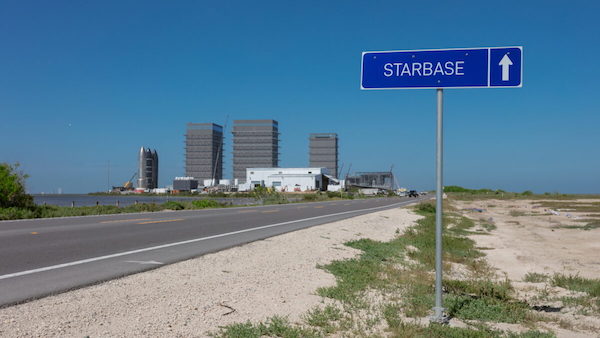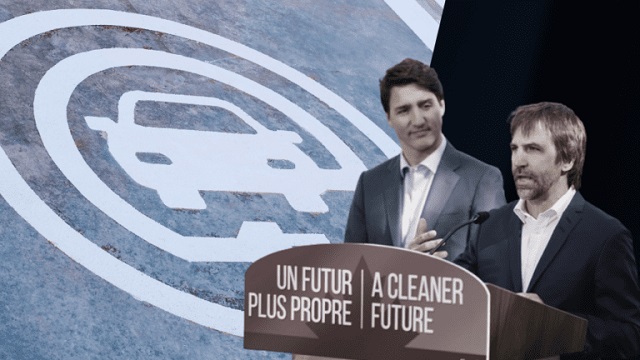Business
Welcome to Elon Musk’s New Company Town: ‘Starbase, TX’ Votes To Incorporate


From the Daily Caller News Foundation
By
Voters in Cameron County, Texas, overwhelmingly approved Saturday a measure to incorporate Elon Musk’s rocket complex near Brownsville as a new municipality called Starbase.
Unofficial results posted Saturday night showed 98% of the 177 ballots cast supported the creation of the town, which includes SpaceX facilities and housing tied to the company, according to The Wall Street Journal. Only residents living within the proposed town’s boundaries were eligible to vote, most of whom work for or are affiliated with SpaceX.
Once county commissioners certify the election, Starbase will begin operating as an official municipality under Texas law, which marks the launch of a rare company-run town where most residents are tied to SpaceX. The new town will oversee zoning, budgeting, and staffing while adhering to state transparency rules such as open meetings and public records requirements.
SpaceX has said little publicly about its plans, but company officials previously suggested the town could help streamline operations and support workforce growth. SpaceX vice president Bobby Peden was elected mayor of the new town and legal experts noted that state law includes conflict-of-interest rules for public officials employed by private firms operating within the municipality.
Local officials have expressed support for the company due to the thousands of jobs and tourism revenue generated by Starbase since SpaceX employs roughly 3,400 workers and contractors at Starbase. However, some residents and environmental groups remain concerned about increased rocket activity, limited beach access, and the town’s close ties to the company that created it.
The Starbase site has become central to Musk’s vision of human spaceflight, particularly SpaceX’s development of Starship, a nearly 400-foot rocket designed for missions to the moon and Mars. Though early test flights have ended in explosions, recent missions have demonstrated partial recovery capabilities and Musk described the area as a “Gateway to Mars.”
Musk will not hold a formal political role in Starbase, but the town is his brainchild, and since announcing the idea in 2021, he has urged employees to move there and expanded his personal and corporate presence in Texas. He relocated his primary residence and key businesses to the state and now lives in a $35 million compound in Austin.
Business
Senator wants to torpedo Canada’s oil and gas industry

From the Fraser Institute
Recently, without much fanfare, Senator Rosa Galvez re-pitched a piece of legislation that died on the vine when former prime minister Justin Trudeau prorogued Parliament in January. Her “Climate-Aligned Finance Act” (CAFA), which would basically bring a form of BDS (Boycott, Divestment, and Sanctions) to Canada’s oil and gas sector, would much better be left in its current legislative oblivion.
CAFA would essentially treat Canada’s oil and gas sector like an enemy of the state—a state, in Senator Galvez’ view, where all values are subordinate to greenhouse gas emission control. Think I’m kidding? Per CAFA, alignment with national climate commitments means that everyone engaged in federal investment in “emission intensive activities [read, the entire oil and gas sector] must give precedence to that duty over all other duties and obligations of office, and, for that purpose, ensuring the entity is in alignment with climate commitments is deemed to be a superseding matter of public interest.”
In plain English, CAFA would require anyone involved in federal financing (or federally-regulated financing) of the oil and gas sector to divest their Canadian federal investments in the oil and gas sector. And the government would sanction those who argue against it.
There’s another disturbing component to CAFA—in short, it stacks investment decision-making boards. CAFA requires at least one board member of every federally-regulated financial institution to have “climate expertise.” How is “climate expertise” defined? CAFA says it includes people with experience in climate science, social science, Indgineuous “ways of knowing,” and people who have “acute lived experience related to the physical or economic damages of climate change.” (Stacking advisory boards like this, by the way, is a great way to build public distrust in governmental advisory boards, which, in our post-COVID world, is probably not all that high. Might want to rethink this, senator.)
Clearly, Senator Galvez’ CAFA is draconian public policy dressed up in drab finance-speak camouflage. But here’s what it would do. By making federal investment off-limits to oil and gas companies, it would quickly put negative pressure on investment from both national and international investors, effectively starving the sector for capital. After all, if a company’s activities are anathema to its own federal regulators or investment organs, and are statutorily prohibited from even verbally defending such investments, who in their right minds would want to invest?
And that is the BDS of CAFA. In so many words, it calls on the Canadian federal government to boycott, divest from, and sanction Canada’s oil and gas sector—which powers our country, produces a huge share of our exports, and employs people from coast to coast. Senator Galvez would like to see her Climate-Aligned Finance Act (CAFA) resurrected by the Carney government, whose energy policy to-date has been less than crystal clear. But for the sake of Canadians, it should stay dead.
Automotive
Opposition Conservatives fail in attempt to “Pull the Plug” on Carney’s Electric Vehicle Mandate

From Conservative Party Communications
After a Lost Liberal Decade of rising costs and slow growth, Mark Carney wants you to think his government has moved on from Justin Trudeau’s failed policies.
Unfortunately for Canadians, Carney has no interest in scrapping one of his predecessor’s most reckless and costly ideas: a zero-emissions vehicle (ZEV) mandate starting next year that will ultimately ban Canadians from buying gas-powered cars by 2035.
As the required percentage of ZEV sales increases each year, the government wants to force manufacturers and importers to buy costly credits of up to $20,000 for every EV they are short of the Liberals’ quota – a huge expense that will ultimately be passed on to, and paid by Canadian consumers.
That’s why Conservatives have introduced a motion to end this harmful scheme, ensuring Canadians can continue to buy the kind of car they need at a price they can afford.
EVs are great for many families, who should always be free to purchase the vehicle of their choice. But for many Canadians – who live in cold environments or travel long distances – they can be practically useless, especially without the infrastructure to power them.
One government report estimated that changes to Canadian infrastructure required to support a transition to ZEVs could cost up to $300 billion by 2040. On top of the costs already imposed on manufacturers and buyers, this policy will require billions in new tax dollars and government debt.
No wonder one 2024 survey found two thirds of Canadians find the 2035 target is unrealistic.
As unjust tariffs threaten an automotive sector which contributes billions to our GDP, the Liberals continue to put their elitist, top-down ideology ahead of the livelihoods of hundreds of thousands of proud Canadian workers.
While Carney talks about change, Conservatives are here to deliver. That’s why we’re fighting to repeal the ZEV mandate, scrap the industrial carbon tax and cancel Liberal fuel standards. We trust Canadians – not Ottawa’s Liberal elite – to make the best decisions for themselves and their families.
It’s time to put Canadians back in the driver’s seat.
-

 Alberta2 days ago
Alberta2 days agoCalls for a new pipeline to the coast are only getting louder
-

 Business2 days ago
Business2 days agoCanada’s economic pain could be a blessing in disguise
-

 Censorship Industrial Complex2 days ago
Censorship Industrial Complex2 days agoJordan Peterson reveals DEI ‘expert’ serving as his ‘re-education coach’ for opposing LGBT agenda
-

 Alberta2 days ago
Alberta2 days agoUnified message for Ottawa: Premier Danielle Smith and Premier Scott Moe call for change to federal policies
-

 Education2 days ago
Education2 days agoStudents can’t use AI to cheat on standardized tests
-

 International2 days ago
International2 days agoTrump puts new price tag on Canada joining “Golden Dome”
-

 Economy1 day ago
Economy1 day agoOttawa’s muddy energy policy leaves more questions than answers
-

 Business2 days ago
Business2 days agoRhetoric—not evidence—continues to dominate climate debate and policy







